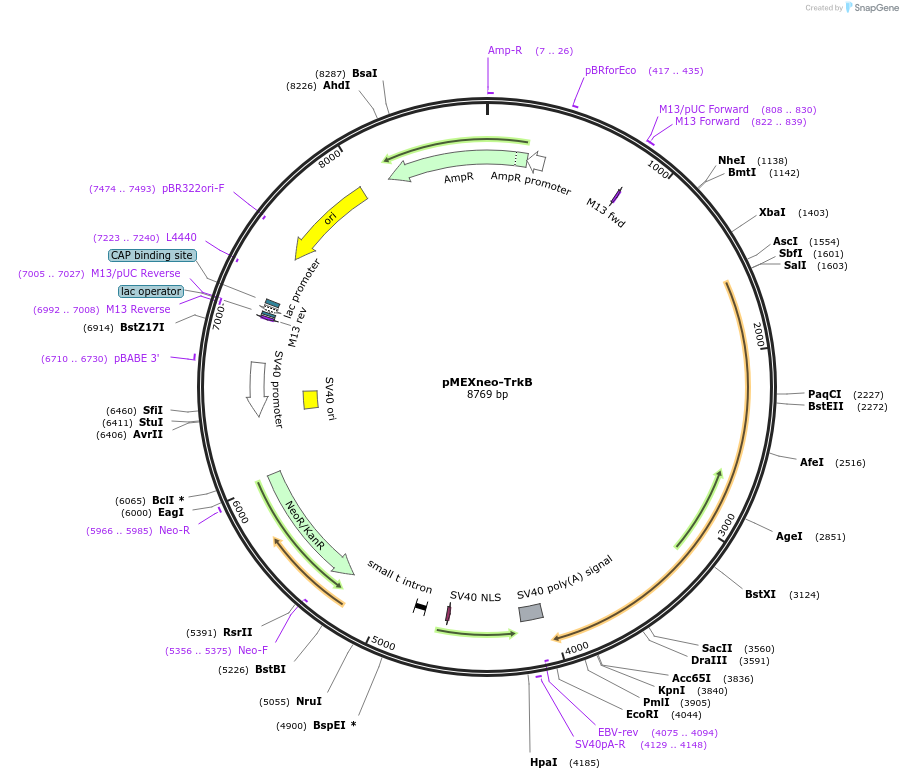pMEXneo-TrkB
(Plasmid
#190203)
-
PurposeTo express the Human TrkB receptor under the Moloney mouse sarcoma virus LTR
-
Depositing Lab
-
Sequence Information
Ordering
| Item | Catalog # | Description | Quantity | Price (USD) | |
|---|---|---|---|---|---|
| Plasmid | 190203 | Standard format: Plasmid sent in bacteria as agar stab | 1 | $89 | |
Backbone
-
Vector backbonepMEXneo
-
Backbone manufacturerForough R, et al. J Biol Chem. 1993 Feb 5;268(4):2960-8. PMID: 7679105
- Backbone size w/o insert (bp) 6366
- Total vector size (bp) 8769
-
Vector typeMammalian Expression
-
Selectable markersNeomycin (select with G418)
Growth in Bacteria
-
Bacterial Resistance(s)Ampicillin, 100 μg/mL
-
Growth Temperature37°C
-
Growth Strain(s)NEB Stable
-
Copy numberHigh Copy
Gene/Insert
-
Gene/Insert nameTrkB
-
Alt nameNTRK2
-
SpeciesH. sapiens (human)
-
Insert Size (bp)2433
-
GenBank IDS76473 VERSION S76473.1
-
Entrez GeneNTRK2 (a.k.a. DEE58, EIEE58, GP145-TrkB, OBHD, TRKB, trk-B)
- Promoter Moloney mouse sarcoma virus right LTR
Cloning Information
- Cloning method Restriction Enzyme
- 5′ cloning site SalI (not destroyed)
- 3′ cloning site EcoRI (not destroyed)
- 5′ sequencing primer M13-forward
- 3′ sequencing primer EBV-rev
- (Common Sequencing Primers)
Terms and Licenses
-
Academic/Nonprofit Terms
-
Industry Terms
- Not Available to Industry
Trademarks:
- Zeocin® is an InvivoGen trademark.
These plasmids were created by your colleagues. Please acknowledge the Principal Investigator, cite the article in which the plasmids were described, and include Addgene in the Materials and Methods of your future publications.
-
For your Materials & Methods section:
pMEXneo-TrkB was a gift from Pantelis Tsoulfas (Addgene plasmid # 190203 ; http://n2t.net/addgene:190203 ; RRID:Addgene_190203) -
For your References section:
High resolution mapping of the binding site of TrkA for nerve growth factor and TrkC for neurotrophin-3 on the second immunoglobulin-like domain of the Trk receptors. Urfer R, Tsoulfas P, O'Connell L, Hongo JA, Zhao W, Presta LG. J Biol Chem. 1998 Mar 6;273(10):5829-40. doi: 10.1074/jbc.273.10.5829. 10.1074/jbc.273.10.5829 PubMed 9488719







